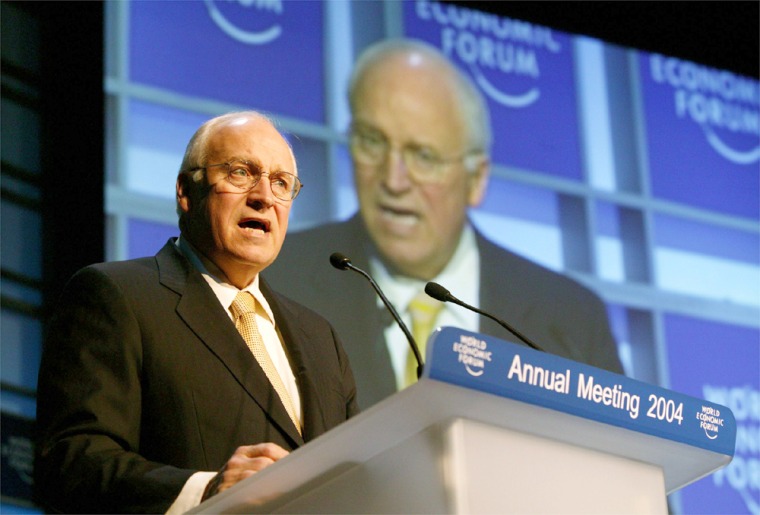Democratic nations must join together to fight terrorism and the spread of the world’s most dangerous weapons, but if diplomacy fails, they must be prepared to use force, Vice President Dick Cheney said Saturday.
In remarks at the World Economic Forum, Cheney defended the U.S.-led invasion of Iraq, yet struck a conciliatory tone to ease trans-Atlantic relations strained by the war.
“We must act with all urgency this danger demands,” Cheney said.
Ideologies of violence must be confronted at the source by nurturing democracy throughout the Middle East and beyond, Cheney said at the forum held in this Swiss alpine resort. Cooperation among governments and international institutions is even more important today than in the past, he said.
While Cheney’s tone was conciliatory, he asked much of the European community. He asked Europe to stand with the United States in supporting democratic reforms in Iran, make a pitch for Turkey’s entrance into the European Union, and he asked for more deployable European troops.
Applause was polite, in contrast to the standing ovation that Powell got at last year’s event.
The vice president insisted that if diplomatic efforts aren’t enough to defeat terrorism and stop the proliferation of weapons, America and other nations must be prepared to use force.
“Direct threats require decisive action,” Cheney told the more than 1,500 world political, corporate and opinion leaders who gathered here in eastern Switzerland to discuss security, economic and other global issues.
A Finnish lawmaker, Eva Biaudet, said she was shocked by the “militarism” of Cheney’s speech and his demand that Europe increase its military capabilities.
“His solution for reaching democracy was armaments, which is not really the European solution,” she said. “He forgot the development part and it worries me.”
Last year at the forum, when anti-Americanism sentiment ran high, Secretary of State Colin Powell took the podium for the United States and called on all nations to back U.S. efforts to force Iraq to disarm.
The Bush administration used Saddam Hussein’s alleged possession of weapons of mass destruction to justify the invasion, but no weapons have been found.
Still, with the Iraqi regime ousted and Saddam in U.S. custody, Cheney faced a less hostile audience.
Nurturing democracy
He said the attacks on America on Sept. 11, 2001, gave all nations “the merest glimpse of the threat that international terrorism poses to us all.” Nurturing democracy, especially in the Middle East, is essential to halting terrorism, Cheney said.
“Democracies do not breed the anger and the radicalism that drag down whole societies or export violence,” he said. “Terrorists do not find fertile recruiting grounds in societies where young people have the right to guide their own destinies and to choose their own leaders.”
Cheney was asked about a quotation from Benjamin Franklin that he used in his Christmas card: “If a sparrow cannot fall to the ground without His notice, it is likely that an empire can rise without His help?”
He replied that the quotation was chosen by his wife, but continued: “It shouldn’t be taken as some kind of indication that the United States today sees itself as an empire.”
If the United States were a true empire, he said, “we would certainly preside over a much greater piece of the earth’s surface than we currently do.”
Cheney’s call for democratic reform in the Middle East comes as America is seeking help from the United Nations — the international body it sidelined in its decision to invade Iraq — in achieving a transfer of power to the Iraqis.
It also comes as the U.S. death toll in Iraq has topped 500.
Meanwhile, thousands of Iraqis, led by the country’s most powerful Shiite cleric Grand Ayatollah Ali al-Husseini al-Sistani, are demonstrating in the streets, demanding that direct elections, not caucuses, be held to select delegates for a transitional government.
